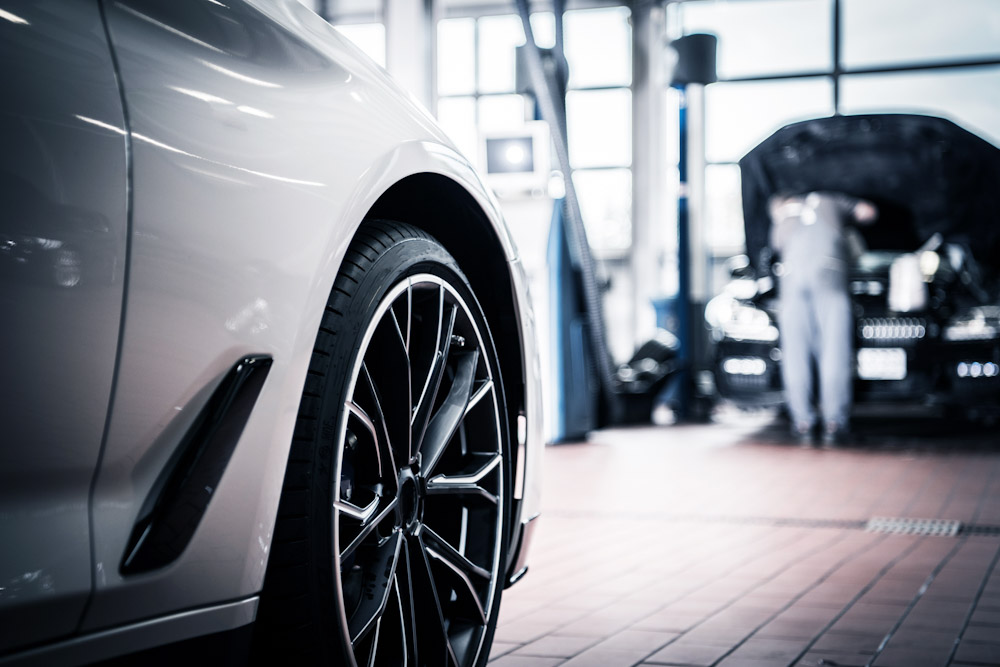
The Importance of Maintaining Your Vehicle
When it comes to cars, the term ‘high-mileage can mean different things to different people. While some may rack up well over 250,000 on their reliable commuter car, the majority consider the 100,000-mile mark to be a sign of age. By that point, issues have usually begun to present themselves with greater frequency and more and more money is required for repairs.
As it turns out, the long-term health of your car can largely depend on how well you treat it. Even the newest, nicest cars can quickly lose their luster if proper maintenance is neglected. We understand that there is a lot to keep in mind, so here is a breakdown of the important auto care services and how often they necessary.
Oil Change
At Master Muffler we’ll give you the facts. While 3,000 miles is the recommended distance between oil changes, that is not always entirely necessary. It is good to have fresh oil in your vehicle, but modern lubricants and engines typically allow mileage intervals of 5,000 to 7,000 miles. If you elect to spend a little more and go full-synthetic, you can go as far as 10,000 to 15,000 miles between changes. Just make sure you strictly adhere to those timelines.
Tune-Up
Older model cars with non-electric ignitions should be tuned up every 10,000 to 20,0000 miles. Newer vehicles, however, will be good for 30,000 to 70,000 miles if taken care of properly. A proper tune-up will include the following:
- Change the Spark Plugs
- Change the Fuel Filter
- Replace the Distributor Cap (if needed)
- Check spark plug wires (replace if needed)
- Check the belts (replace if needed)
- Check the battery
- Check oxygen sensors (replace if needed)
- Replace the air filter (if needed)
- Replace the PCV valve (if needed)
- Change the distributor rotor (older model vehicles)
- Check the Coil or Coil packs (replace if needed)
If you’ve put on a good amount of mileage since your last tune-up and think it may be time to get things looked at, listen to your gut. When in doubt, get it checked out.
Transmission
The transmission is a vital component of your car and extending its life will keep your car on the road for longer. Be sure to check and replace your transmission fluid when needed. Most manufacturers recommend a transmission flush every 30,000-60,000 miles, or every two to four years. This will help keep your transmission operating smoothly.
Battery
Batteries are responsible for powering the electronics in your vehicle as well as aiding in engine ignition. After three years, it is usually time to install a replacement battery. After four or five years, your battery will most likely become unreliable.
Tire-Rotation
Having your tires properly rotated and aligned can greatly increase performance and handling. This can be particularly important when driving in rain or snow, as misaligned tires will have less traction on the road. You will also see more wear on your tires, decreasing their life. Make sure to get a tire alignment every 3,000 to 6,000 miles, or when you come in for your oil change.
Tire Replacement
The common rule of thumb is to replace your tires every 6 years or when there are signs of significant wear, whichever comes first. If your tires are bald or cracked, it is definitely time to get them switched out in order to avoid a flat or blowout.
Emissions System Inspection and Repair
Of course, in the great state of Utah, registration requirements mandate an emissions inspection once every two years. If the emissions inspection is failed, you will likely need an emission systems repair.
Ogden’s Trusted Auto Care Experts
We pride ourselves on being one of Utah’s finest mechanic shops. Such a reputation is achieved through hard work and dedication to each and every customer. If you are in need of auto repair expertise, bring your vehicle to us and we’ll diagnose and repair the issue quickly and affordably, sending you back on the road safe and sound. We treat every car like it is our own, so you will have no problem trusting us with your routine maintenance and occasional repairs. Master Muffler Ogden is here to help you.
Related Posts
Key Takeaways On average, passenger vehicle tires last 40,000 to 60,000 miles, depending on type, driving habits, and maintenance. Replace tires when tread depth reaches 2/32”, if damaged, or older than 10 years. Regular rotation, alignment, and proper inflation extend tire life. Aggressive driving, poor roads, and harsh weather shorten tire lifespan. Take advantage [...]
When you think about car maintenance, you probably focus on oil changes, tire rotations, and maybe even brake pad replacement. But what about your brake fluid? If you’ve ever wondered, “What does brake fluid do?” or “Why is brake fluid important?”, you’re not alone. Brake fluid might not be the most talked-about part of [...]
Is that high-pitched squeal from your brakes driving you—and everyone else—crazy? Don’t ignore it. Squeaky brakes aren’t just annoying, they’re your car’s way of saying something needs attention. Whether you're cruising through Salt Lake City or winding up Idaho’s mountain passes, here’s what’s likely going on, how you can fix it, and when it [...]





